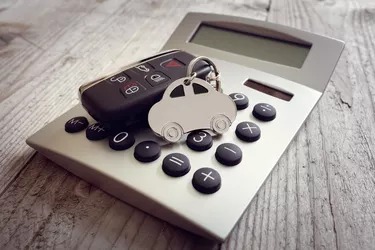
When you take out an auto loan, there are many things to remember, including questions like, "When will I receive my first auto loan bill?" The first payment default rule is one of the most important things to remember. This rule governs what happens if you're late on your first car payment. Depending on your lender, you may be subject to different penalties. With so many Americans on the road, it's unsurprising that Americans owe over a trillion dollars to auto loan companies, according to the Consumer Financial Protection Bureau.
The first payment default rule protects lenders if a borrower defaults on the loan. You must know when the first car payment is due to avoid unwanted penalties. If you're late on your first car payment, your lender may report this to the credit bureaus, which will negatively impact your credit score. In addition, your lender may charge you a late fee. The first payment default rule is crucial to know, and it can help you understand what to expect if you're late on your first car payment.
Video of the Day
Video of the Day
First Payment Default Rule
The first payment default rule is simple: If you're late on your first car payment, your lender reports this to the credit bureaus. There are other terms your lender may have in place. Some lenders will start the repossession process if the first payment is late. They will consider the loan defaulted after only missing the first initial payment. Usually, there is a 90- to 120-day period in which you can be late on payments before the repossession process begins. However, some lenders will choose to immediately repossess if you default on the first payment.
Knowing when the first car payment is due is important to avoid unwanted penalties. Asking questions like, "How late can you be on a car payment?" shows that you understand the crucial aspects of avoiding these penalties. Depending on your lender, the first payment may be due at signing or after a grace period. These terms and details should be clearly stated in your contract, so there shouldn't be any surprise fees or charges.
Auto Loan Grace Period
When is your first car payment due after purchase? It depends on something known as a grace period. An auto loan grace period is a set time (usually 15 days) after your car loan is funded, during which time you're not required to make a payment. The auto loan grace period gives you time to get the paperwork in order and set up your auto loan account. After the auto loan grace period ends, your first payment will be due.
Depending on your lender, you may have a grace period for each subsequent payment. Typically, there's a 90-day period before a car goes into default. Not all lenders offer a grace period, so it's essential to ask about this before you sign the loan contract. If your lender does offer a grace period, be aware that interest accrues during this time and will be added to your principal balance. This accrual means you'll end up paying interest on the interest, which can increase the overall cost of your loan. After the grace period, your first monthly payment will be due.
How Late Can You Be on a Car Payment?
If you're late on a car payment, your lender may report this to the credit bureaus. This report can negatively impact your credit score, decreasing the likelihood of being approved for loans in the future. In addition, your lender may charge you a costly late fee. It's important to know when the first car payment is due and ensure you have the funds available to avoid these penalties. The Consumer Financial Protection Bureau recommends refinancing your vehicle if the monthly payments are too much for you to afford.
Most lenders will work with you if you're having trouble making a payment. You may be able to defer a payment or make a partial payment. However, these options will likely come with additional fees. If you're struggling to make your car payments, you must reach out to your lender as soon as possible to discuss your options. There are legal ways to default on your loan if you cannot make your payments. You should stop payments and speak to your lender.